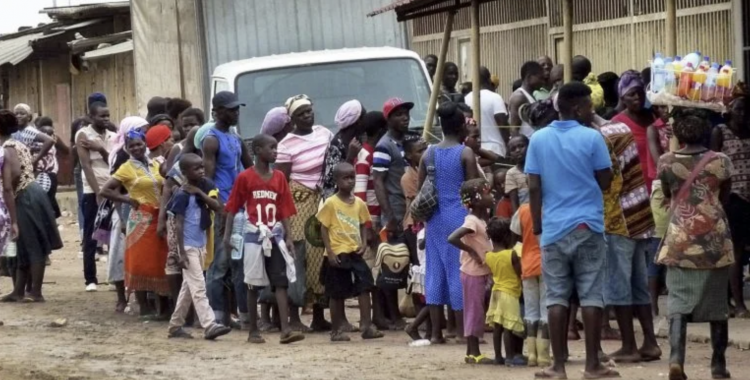Since 2019, Angola has recorded 68 cases involving 172 victims. The numbers were presented in the debate "Protection and comprehensive care for victims of trafficking in health services", organized by the subordinate Ministry of Justice and Human Rights.
According to the head of department of the National Directorate of Human Rights of the Ministry of Justice and Human Rights, Felismino Lisboa, the cases judged had the highest incidence of trafficking for prostitution.
The official stressed that the neighboring provinces of Cunene, Zaire and Lunda Norte are the ones that have recorded the most cases, with conditions favorable to trafficking and social issues such as begging and child labor.
"Angola is a country of destination, transit and origin, being of origin we do not escape this scourge", said Felismino Lisboa in statements to the press, stressing that in cases where Angola is a country of destination, prostitution of Asian citizens.
The head of department of the National Directorate of Human Rights highlighted that from Angola there is a record of people trafficked to Portugal, France, Palau and America.
According to Felismino Lisboa, Angolan law provides for sentences of eight to 12 years for the crime of human trafficking, admitting that it is still a challenge to judge these cases in Angolan justice.
"We need to work hard on this issue", highlighted the person in charge, expressing concern because of the total number of cases registered, only 27 percent were judged.
"There are still some who are under investigation, because the process is not as easy as it seems, it takes a lot of elements to get to the issue of trafficking and the perpetrators themselves, they are invisible people who, sometimes, use other people to commit these crimes," he added.
In turn, the forensic doctor from the Criminal Investigation Service Aurélio Ngueve stated that there is no trafficking in human beings for organ harvesting in Angola.
The national coordinator of the mental health program Massoxi Vigário, who addressed the issue of Providing Psychological Assistance to Victims of Human Trafficking, admitted that there are still weaknesses among health personnel in identifying victims when they are taken by their attackers to hospitals.
"We lack this training so that we can actually facilitate the process of rescuing these people, which could be through the main entrance, which is the emergency bank, due to the strange, inhibited behavior, not only of the victim, but of the companion as well", noted the person in charge, stressing that specific cases resulted in the rescue of victims.
In Angola, since 2014 there has been an interministerial commission to combat human trafficking, which works on prevention, prosecution and accountability of perpetrators, partnership and exchange of experiences with various national and foreign institutions and protection of victims.
According to the Secretary of State for Human Rights and Citizenship, Ana Celeste Januário, the country has specific legislation on this matter, such as the Foreign Legal Regime Law in the Republic of Angola, which contains provisions that allow documentary control of minors in all borders and the granting of visas for humanitarian reasons.







